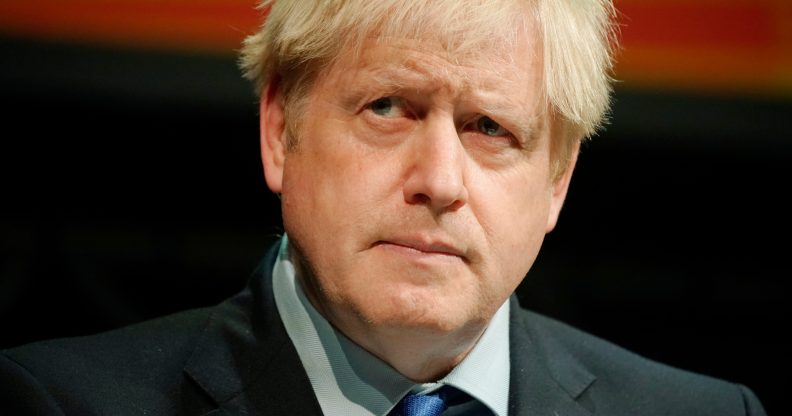MPs from every major party demand government act on HIV before pandemic undoes decades of hard work

Boris Johnson. (Christopher Furlong/WPA Pool /Getty)
Cross-party MPs have urged the UK government to take vital action on HIV before the COVID-19 pandemic disrupts and undoes decades of hard-won progress.
The All-Party Parliamentary Group (APPG) on HIV and AIDS — which counts over 150 MPs and peers as members — unveiled its report on the impact of COVID-19 on HIV prevention and treatment at an event Monday (October 5).
The report called for “greater focus, investment and engagement” from governments around the globe, including the UK, to “not only help tackle the devastating impacts of COVID-19, but also help prevent a reversal of the huge gains we have made in tackling HIV and other infectious diseases”.
During the pandemic, the report said, there has been “an increase in human rights abuses and a growing phenomenon of COVID stigma, which coupled with HIV stigma is a potentially deadly combination for the world’s most marginalised communities”.
It added: “Many governments have opted for militarised interventions to enforce social distancing, and such measures are being used in some cases to secondarily target groups already pushed to the outskirts of society because of their gender, sexuality or HIV status.
“The UK must ensure its COVID-19 policy has a strong human rights component and that grassroots organisations serving vulnerable communities receive increased funding to deal with the challenges posed.”
“Care and prevention efforts have also been hindered by COVID-19” in the UK specifically, said the APPG, whose members include Hilary Benn, David Lammy, Anna Soubry, Dawn Butler, Baroness Barker and John McDonnell.
“Since the easing of lockdown, major concerns remain that BAME communities are disproportionately impacted by COVID-19, HIV and mental health,” the report continued.
“Many marginalised groups, such as undocumented migrants, are unable to access support; these groups are often in greatest need of mental health support, HIV prevention, treatment and care… Mental health is a crisis likely to cause greater problems further down the line, particularly in HIV.”
Mental health issues can also increase “HIV adherence” and “risk-taking behaviours”, meaning that “infection rates will increase unless the lack of appropriate mental health services for people living with HIV is addressed”.
“The combination of HIV stigma and social isolation which has been enforced by the spread of COVID-19 is leaving these vulnerable populations at risk of more severe crises at a time when services are severely reduced,” it added.
Director of policy at National AIDS Trust Kat Smithson welcomed the report in a statement, saying: “HIV, like COVID-19, is a condition which is impacted by a wide range of intersecting factors, including the marginalisation of certain groups and communities.
“COVID-19 has made worse existing inequalities in HIV in the UK and it’s vital that this pandemic doesn’t undermine some of the recent progress made in HIV prevention and treatment in the UK.”
At the virtual launch of the report, MP and minister for public health Jo Churchill said that “levelling” the unequal impact of poor health on marginalised communities was a priority for the government.
https://twitter.com/SDoughtyMP/status/1313090562279571456
Smithson added: “To do this, it’s critical that efforts are redoubled to ensure Black and other ethnic minority populations are properly involved and are resourced to take a lead on addressing the impact of HIV on their communities.”
On the mental health challenges facing those who are HIV-positive, Smithson said: “People living with HIV were twice as likely to experience poor mental health prior to the COVID-19 pandemic, so this was already an area of huge unmet need.
“We cannot have a perfect storm, where mental health support needs increase but the impact of COVID-19 means the system can’t respond.
“To address this, we need to ensure voluntary sector and specialised clinical mental health services are urgently prioritised in HIV care.”
Churchill also reaffirmed the government’s support of the independent HIV Commission, and Smithson added: “We hope this translates into concrete actions taken as part of the promised Government HIV Action Plan, which should outline a roadmap to achieve the national target to end any new HIV transmissions by 2030.
“The minister again pledged to reach this target, and we look forward to working with the government to achieve this.”

